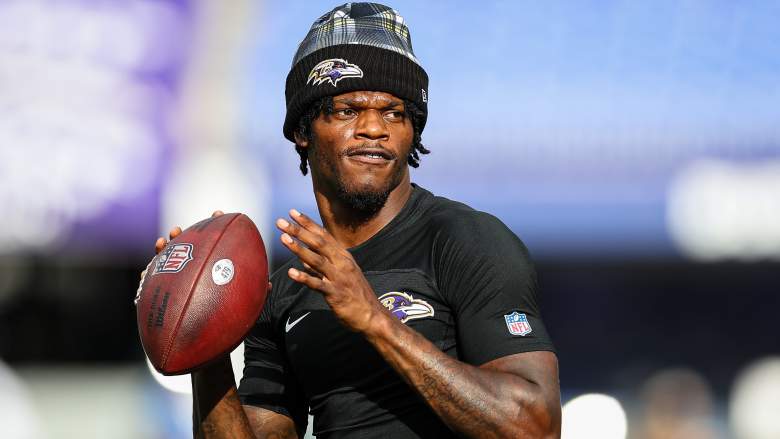The NFL world was shaken this weekend when Baltimore Ravens quarterback Lamar Jackson made headlines not for his performance on the field, but for a bold statement off it. During what was supposed to be a league-wide celebration of diversity and inclusion, Jackson flat-out refused to wear the rainbow-colored LGBT armband that had been distributed to players.

According to multiple insiders, team officials offered every player the armband in honor of Pride Awareness Day. While most quietly accepted, Jackson allegedly pushed it back and said, “I’m here to play football, not to take part in some woke show.” His decision immediately lit up social media, dividing fans and analysts alike.
Supporters of Jackson quickly flooded X (formerly Twitter) with messages praising his stance, calling him a “true leader” for resisting what they describe as forced political messaging in sports. One fan wrote, “Finally, an athlete who isn’t afraid to stand his ground. Respect to Lamar.”

But critics didn’t hold back either. Many accused Jackson of being tone-deaf and disrespectful to a community the league has been working hard to support. Some LGBT advocacy groups went so far as to demand an official apology, warning that his words could undo years of progress in making the NFL more inclusive.
Interestingly, Jackson himself has not yet released a formal statement beyond the alleged comments overheard in the locker room. The Ravens organization also declined to comment, leaving fans guessing whether the team will support their star quarterback or distance themselves from his controversial stance.
For now, the debate rages on: Should athletes be expected to represent causes off the field, or should they be free to focus solely on the game? Regardless of where one stands, one thing is clear — Lamar Jackson has once again proven that his impact extends far beyond the football field.